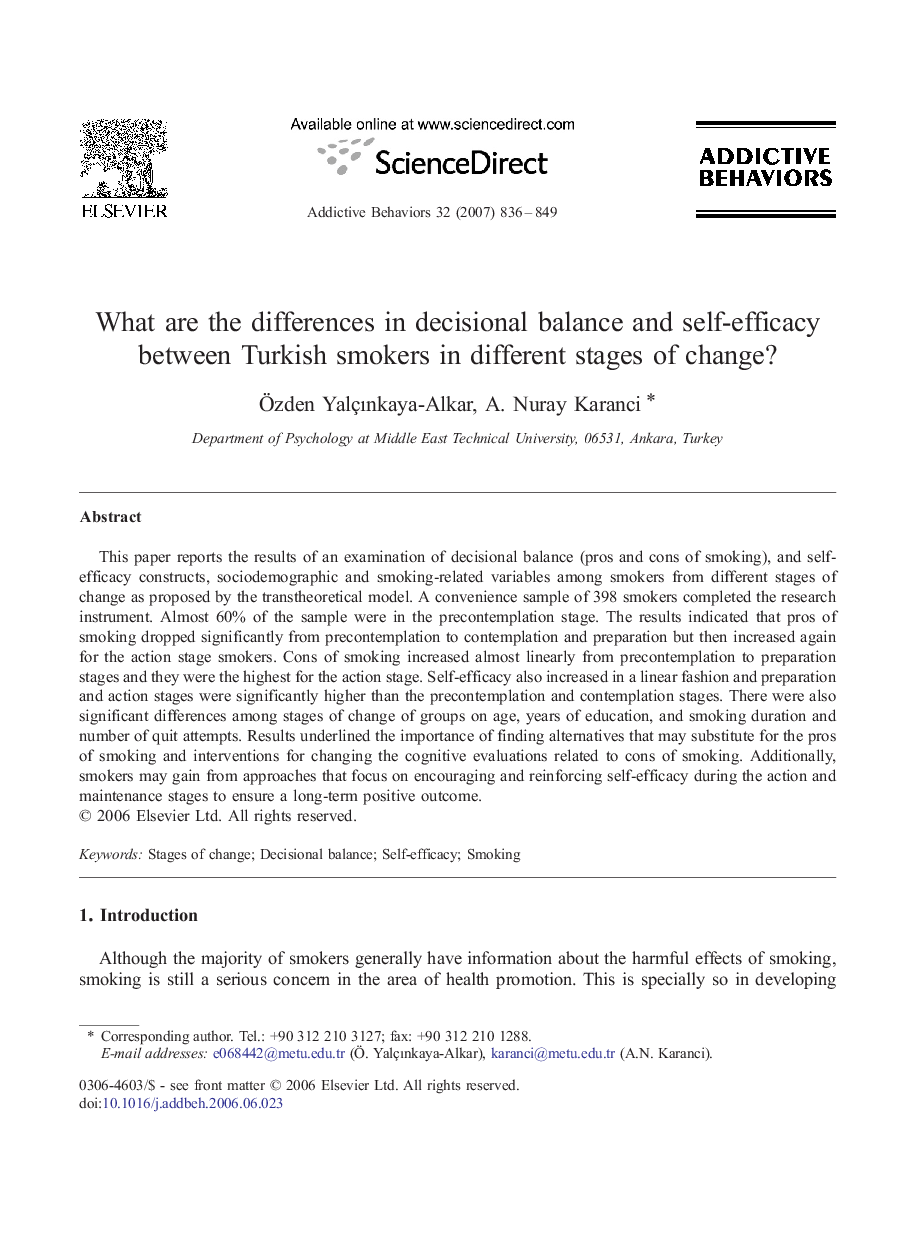| Article ID | Journal | Published Year | Pages | File Type |
|---|---|---|---|---|
| 900475 | Addictive Behaviors | 2007 | 14 Pages |
This paper reports the results of an examination of decisional balance (pros and cons of smoking), and self-efficacy constructs, sociodemographic and smoking-related variables among smokers from different stages of change as proposed by the transtheoretical model. A convenience sample of 398 smokers completed the research instrument. Almost 60% of the sample were in the precontemplation stage. The results indicated that pros of smoking dropped significantly from precontemplation to contemplation and preparation but then increased again for the action stage smokers. Cons of smoking increased almost linearly from precontemplation to preparation stages and they were the highest for the action stage. Self-efficacy also increased in a linear fashion and preparation and action stages were significantly higher than the precontemplation and contemplation stages. There were also significant differences among stages of change of groups on age, years of education, and smoking duration and number of quit attempts. Results underlined the importance of finding alternatives that may substitute for the pros of smoking and interventions for changing the cognitive evaluations related to cons of smoking. Additionally, smokers may gain from approaches that focus on encouraging and reinforcing self-efficacy during the action and maintenance stages to ensure a long-term positive outcome.
